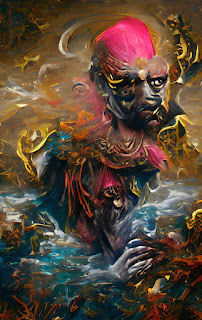Mourning in Testopolis
Mourning in Testopolis Anxiously, the English students joined the exam queue behind an ostentatious Fronted Adverbial, setting the scene. Angry clouds scudded across a melancholy sky. Sometimes a shaft of Sibilance pierced the gloom. Something sparkly was lurking beside a Colon: showy, shimmering, and seductive. Was it success? Indeed, the Semantic Field of Testopolis was strewn with Pathetic Fallacies and hot-headed Personifications; it was a Gothic graveyard where dead Metaphors haunted the graves of highly sophisticated and profoundly erudite scholars; they snoozed forever in a bed of sleepy Semi-colons. Sometimes a bitter sweet Oxymoron leapt out of a coffin and boldly bashed a passing Plosive. Tension was rising as the Pace quickened. Splatter! Lady Allegory had lifted the long lance of Hyperbolic Alliteration and skewered the deadliest of Superlative orthographic monsters: the dreaded Onomatopoeia . What a premature climax! Clatter! Or was it buzzing of ...


